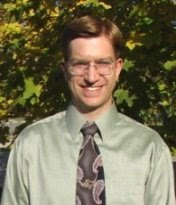Though some might feel it off topic, my thoughts in this post do fit into education and open content thinking. Besides, I feel it urgent to add my story to the current conversation. What I share is not the full story, but some quick thoughts on the topic.
Cancer Patience, or—accordingly, using the pun—Cancer Patients, is the title of a book I began writing while under the euphoric drizzle of chemotherapy some six years ago. It was clear to me then that I had not been properly educated nor prepared for the battle with time I would have, within and without, while undergoing cancer treatments. I wished someone had written a book on the specifics of how difficult it is to have to wait, and wait, and wait for everything, mostly because you hardly feel like doing anything else.
You have to wait for the barium solution to settle in your stomach before you can wait in line to get a CT Scan, which then is waiting for the scan to be over; you have to wait days from the time your blood is drawn after each chemo round to see how the markers are doing, and if the red blood count is too low, you have to wait until a drug raises your cell count before you can schedule and wait for the next chemotherapy appointment, which, again, is waiting for the dripping solution session to be over; and, you have to wait for the steroids to take effect, which shorten the wait for the anti-nausea medication to take effect, which helps in the wait for the chemo to run its course. Not to mention you had to wait until having recovered from the initial tumor-removal operation to have begun any of this waiting in the first place.
One day I asked my dear oncologist, Doctor Regina Klein, "Tell me, generally, are the treatments going to advance until they cure cancer, or is there some other solution?" I will never forget her reply. She said, "No, what we are doing now is just the best we currently have. These treatments are barbaric, but we have nothing better. The cure for cancer will be something else, something like genetic engineering or stem cell advances." Again, more waiting, I thought. More patience.
Lance Armstrong is tired of waiting, tired of being patient....and frankly, so am I. We both recognize that we survived our battles because of recent scientific advances. We also both recognize that it's time for us to advance to that next level and end the barbarism.
I still give people the same answer I did six years ago when asked, "What does chemo feel like?" I reply, "Like just completing a marathon while sick with the flu and drinking paint thinner." I want that answer to feel like something of the past, something people hear and think, "Yeah, well, I'm glad we don't have to do that anymore."
But it takes money, time, talents, and dedication. This is Lance's cry....to put these resources together. He gave me hope six years ago, he gives me and many others renewed hope now. I remember my doctor who initially diagnosed me on June 9, 2000, saying, "You know, it's the same cancer that Lance Armstrong had and he beat it." I said, "Who's Lance Armstrong?" That was the beginning of my education, a simple question.
In the subsequent weeks, not only did I become an expert on inguinal orchiectomies, chemo cocktails, and metastasis, but I also became a Lance Armstrong expert. His second Tour de France win that summer directly paralleled my fight with cancer, my first of four successful rounds of chemo. It seemed when he finished a daily stage in his race, so did I.
I never would have been able to become so educated had it not been for medical institutions, news agencies, and experts openly putting their information online to be read by the world. And Lance's current cry could not have been heard by so many had the same not been true now. Lance wrote an article for CNN.com that soon became one of the most rapidly accessed articles for them. It links to a brief video of Lance that became one of the most rapidly downloaded and viewed videos for CNN.
These, in turn, spawned many people, like me, to share their stories, which have been placed on CNN.com or elsewhere. And now, it's our turn for action. We can all respond by giving what money, time, talents, and dedication we have to advancing science in order to eradicate this plague.
This mission will happen. And, in my opinion, has only been furthered by the use of open content thinking: releasing some of your rights to your digital content, not only because it is altruistic, but also because of the benefits that come to you and others for doing so….measurable benefits. I'll bet the Lance Armstrong Foundation sees an upswing in donations, and it cannot all be attributed to the renewed marketing campaign. Some must be attributed to the fact that rights to the digital content (text, images, videos) were given away for others to use.
Hurray for Open Content. Now let's see some results.


